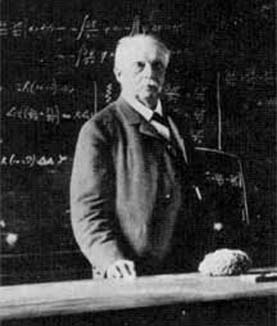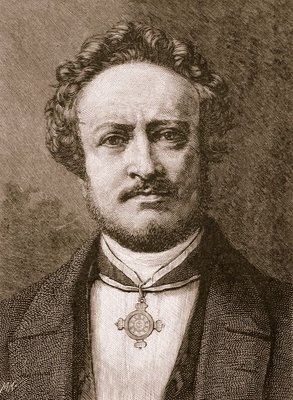
The German scientist Hermann Ludwig Ferdinand von Helmholtz (1821-1894) can be equally well regarded as a physicist, physiologist, physician, biologist, mathematician, philosopher, or engineer/inventor. He made important discoveries in physiology, optics, electrodynamics, mathematics, and meteorology. His multidisciplinary training, approach and interests and his cross-fertilisation of research fields are seen by the members of our Institute and School as a goal worth striving for. Most of the fields and topics on which the present members of the Helmholtz Institute and Helmholtz School work, found their first proper recognition and formulation in the work of this nineteenth century scientist.
Experimental Methodology
Philosophical ideas about human nature inevitabley influenced the shape of the science of psychology. Because psychology is a science, however, much of the shape of the discipline has been determined by experimental explorations and discoveries.
The scientific method relies on empirical observation, hypothesis formulation, and hypothesis testing. An important method of empirical observation is experiement. In an experiment, a researcher manipulates changes in environmental conditions and treatments the subjects receive. By comparing the behaviour of subjects who received one treatment with those who received others, the researcher is able to specify cause-and-effect relationships among changes(variables) in conditions and consequences.
Psychophysiology
Physicians and philosphers have long speculated on the relationship between body and mind. In the nineteenth century researchers began systematic experiments on how physical events are psychologically experienced. The first experiments in the relationship between physiological processes and psychological experience(psychophysiology) focused on the functioning of the senses, especially sight, sound and touch.
Johannes Mueller (1801-1858) established the first institute for the study of physiology in Berlin. Although favouring a mechanistic view of human nature, he also believed in vitalism, a conviction that all living beings were animated by a "life force" that was ultimately impossible to analyse.
One of Mueller's students was Hermann L. von Helmholtz(1821-1894). Helmholtz rejected Mueller's belief in vitalism and instead refined a mechanistic explanation of behaviour in terms of the physical and chemical processes of the nervous system. In Helmholtz's experimental approach to the nervous system, he charted distances between stimulation and response points along the nerve fibers of frogs, demonstrating that behaviours could be evaluated by measuring reaction time, the interval between a stimulus and a response.

Johannes Peter Müller was a German physiologist, comparative anatomist and ichthyologist not only known for his discoveries but also for his ability to synthesize knowledge.
Psychophysics
Another approach to understanding the body-mind connection was taken by the psychophysicists. Psychophysics as a discipline focused on the relationship between the physical and environmental changes(stimuli) and the sensory processes that they trigger. Gustave Feodor Fechner(1801-1889) had been a confirmed mechanist who later in life softened his mechanism in a quest for a more spiritual understanding of experience. In his 1860 work Elements Of Psychophysics, Fechner argued that since matter and mind must be related, research must focus on how physical stimuli are related to the mental experiences they produce.
Ernst Heinrich von Weber(1795-1878) was a colleague of Fechner's who in 1834 had published a study of the sensory processes involved in touch. Weber's experimentation with people's judgements about the heaviness of hand-held weights led him to develop Weber's Law, a mathematical summary of how changes in sensory qualities are perceived. In brief, according to Weber's Law, the noticeability of a change in a stimulus depends on the magnitude of that stimulus. For example, if a person has lost five pounds, will weight loss be noticeable? Yes, if the person previously weighed only 90 pounds. No, if the person previously weighed 300 pounds. One pound less than 90 is more noticeable than one pound less than 300.
No comments:
Post a Comment